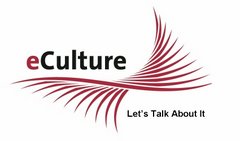It is without doubt that globalisation has become a constant in our lives. I have Irish parents, relatives who are Iranian, Italian and French. I have friends who are Swiss, French, Chinese, Malasian, Italian, Greek, Russian, Spanish, English, German, Pakistani and American. In Australia we are so accepting of others differences (except for perhaps Muslims, but that's another story) that you hardly notice the fact that many people come from somewhere else. For many Australians it is difficult to treat cultural homogenisation as a threat. Historically, there have been many cultural encounters which have occurred repeatedly throughout the world. Because of these previous cultural encounters, most forms of culture in todays world are, to varying extents, hybrid cultures. From a utopian perspective, I would like to think we can look forward to a world where we are free to live our lives and practice our own culture in whichever way we choose without fear, prejudice or sanction. Culture is certainly not a fixed entity. Culture is constantly adapting and changing relative to the translation of cultural industry goods. Burgeoning technology based diasporic communities are a prime example of how we can freely engage in cultural practices via technology. This demonstrates how improvements in technology have maintained, developed and expanded strong and healthy cultural practices.
Historically, there have been many cultural encounters which have occurred repeatedly throughout the world. Because of these previous cultural encounters, most forms of culture in todays world are, to varying extents, hybrid cultures. From a utopian perspective, I would like to think we can look forward to a world where we are free to live our lives and practice our own culture in whichever way we choose without fear, prejudice or sanction. Culture is certainly not a fixed entity. Culture is constantly adapting and changing relative to the translation of cultural industry goods. Burgeoning technology based diasporic communities are a prime example of how we can freely engage in cultural practices via technology. This demonstrates how improvements in technology have maintained, developed and expanded strong and healthy cultural practices.
Looking to the future, I envisage that as third world countries become 'connected' to the outside world via technology, the process of information exchange will be the key to their development and improvement. India and China are the first of these countries to 'emerge' from the desperation of third world poverty and deprivation. I argue that throughout this process of development and improvement the transmission of culture will not be homogeneous. Instead I argue that the translation of culture involves a certain degree of human agency.
Cultural translation is not the same from one person to the next. It cannot be predicted from one culture to the next. For example, a McDonalds Big Mac in Moscow is regarded as a luxury item. In fact, the wealthy diners are willing to pay surrogates a small fortune to wait in line and deliver the Big Mac to their car. In Australia MaDonalds is often referred to as Maccas, echoing the familiarity of many other colloqualisms such as Johnno, Bazza and Gabba (Duncum 2001). What one society translates will not be the same as another. This varying range of cultural translation will continue to provide diversity, color, richness and ultimately heterogeneity.
With the advancement of technology, I can imagine a future where online diasporic communities transcend the place of cultural engagement one step further. Virtual diasporic communities will develop giving people the ability to walk around their homelands and perhaps even their hometowns as they were at a given point in time. Imagine, a new immigrant, being able to log on to a site where they can create an avatar, or better still, jump into a virtual reality suit, and 'go back home' for a holiday, converse in their own language, discuss the local news and events and perhaps even talk to people they know, all in the street where they were raised.
CyberHomeland Travel Abroad - Your virtual homeland travel agency!



2 comments:
I love your sincere sensitivity towards the people of the planet. I too, is a catalyst. I owe this to the many visits of CARE org. to our school in Baluarte, Iloilo City Philippines. I am a mom that went back to follow up a degree in Elementary Edu Emphasis and working on the Math part prior to graduation. Like you, I love hiking and the ecosystems of the globe, children of impairments, Spanish wines, flamenco, the roar of the ocean, writing, Montagne, K.Marx, and more ...
see you
here:http://sites.google.com/thesplendorofDawn/
Post a Comment